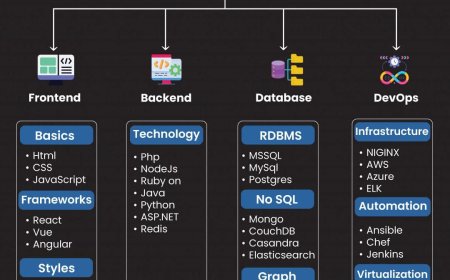How the Income Tax Act 1961 Affects Your Tax Liabilities in 2025

The Income Tax Act 1961 is the cornerstone of tax regulation in India, governing the income tax liabilities of individuals and businesses. This legislation lays the framework for how income is taxed, the deductions you can avail, and the benefits you can claim. As we approach 2025, the impact of the Act becomes increasingly significant in managing your financial planning. If utilized wisely, the provisions of the Income Tax Act 1961 can help individuals considerably reduce their tax liabilities. For example, if you plan to avail of a joint home loan from institutions like Bajaj Finserv, tax benefits under the Act can enhance your financial stability by offering deductions on principal repayment and interest payments.
In this article, we explore how the Income Tax Act 1961 will affect your tax liabilities in 2025, especially in relation to home loans, joint ownership, and how Bajaj Finserv can be your trusted partner in achieving both financial freedom and tax savings.
Understanding the Core Provisions of the Income Tax Act 1961
The Income Tax Act 1961 governs the taxation of income in a structured manner, ensuring fair distribution of tax burdens. Through several sections, individuals can avail tax deductions, exemptions, and rebates. Crucial among these are Sections 80C and 24(b), which specifically benefit homeowners who have taken a home loan.
Section 80C: Benefits on Principal Repayment
Under Section 80C of the Income Tax Act 1961, you can claim deductions of up to ?1.5 lakh each year on the principal repayment of your home loan. When you take a joint home loan, both co-borrowers can claim this deduction separately, effectively doubling your savings.
Section 24(b): Deduction for Interest Payments
Section 24(b) allows deductions on the interest paid on your home loan, up to ?2 lakh in a financial year. Once again, for a joint home loan, both co-borrowers can claim tax benefits individually, making it a compelling option for couples or joint property owners.
By choosing a financial institution such as Bajaj Finserv for your home loan, you can not only finance your dream home but also leverage these tax benefits efficiently.
How Bajaj Finserv Home Loan Can Maximize Your Tax Benefits
Choosing the right financial partner for your home loan is essential. Bajaj Finserv stands out as a trusted name, offering numerous advantages to potential homeowners. Whether you are planning to buy a house with your spouse or a family member, Bajaj Finservs products ensure financial flexibility and ease.
Key Benefits of Bajaj Finserv Home Loans
-
Competitive interest rates: Bajaj Finserv offers flexible and attractive interest rates, making housing loans affordable for everyone.
-
High loan amount: You can avail a loan of up to ?5 crore, ensuring theres no compromise on your dream home.
-
Quick disbursal: With Bajaj Finserv, you enjoy hassle-free and quick loan disbursal, eliminating unnecessary delays and complications.
-
Customizable tenure: You have the option to choose your loan repayment tenure, extending up to 30 years. This ensures affordable EMIs that fit well into your monthly budget.
-
Minimal documentation: The home loan application process is seamless with minimal paperwork, making it less time-consuming and more efficient.
-
Balance transfer facility: Bajaj Finserv offers the flexibility to transfer your existing home loan from another lender for better terms, ensuring financial optimization.
-
Online account management: Manage your loan account conveniently with Bajaj Finservs online portal, which provides real-time access to all details.
Tax Benefits of a Bajaj Finserv Joint Home Loan
If you opt for a joint home loan with Bajaj Finserv, not only do you share the responsibility of repayment but also enjoy doubled tax benefits under the Income Tax Act 1961.
For instance:
-
Each co-borrower can claim deductions under Sections 80C and 24(b) individually, provided both are co-owners of the property.
-
This can potentially lead to tax savings of ?3 lakh on principal repayment and ?4 lakh on interest payments yearly if claimed optimally.
How to Apply for a Bajaj Finserv Home Loan
Availing a home loan from Bajaj Finserv is simple, transparent, and user-friendly. Heres the step-by-step process:
Step 1: Visit Bajaj Finservs Official Website
Head to the official Bajaj Finserv website.
Step 2: Select Home Loan
Browse through the options and choose the home loan category based on your requirements.
Step 3: Fill Out the Application Form
Complete the online application form by entering personal, employment, and property details.
Step 4: Submit Necessary Documents
Keep the documentation ready, including identity proof, address proof, income proof, and property-related papers. Bajaj Finserv ensures minimal paperwork for your convenience.
Step 5: Wait for Approval
After submitting the application and required documents, your eligibility will be verified. If approved, your loan will be disbursed quickly.
Step 6: Track Your Loan Online
Once your loan is approved, you can track repayment schedules, EMI amounts, and loan details online.
Final Thoughts
The Income Tax Act 1961 is a powerful tool for reducing tax liabilities if leveraged strategically. Opting for a joint home loan from Bajaj Finserv ensures you can maximize these tax benefits while securing your dream home. With Bajaj Finserv, you not only enjoy affordable interest rates, high loan amounts, and quick processing but also ensure a smoother financial journey backed by tax savings.
So, why wait? Plan wisely for 2025, and explore Bajaj Finserv home loans today. Visit to start your application process now!
By combining efficient financial tools such as home loans with the advantageous provisions of the Income Tax Act 1961, you can secure a brighter and tax-efficient future.






































